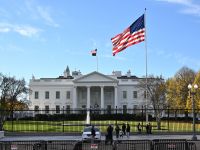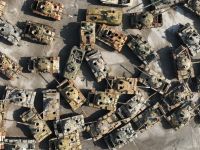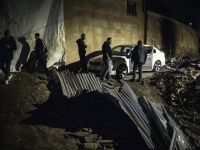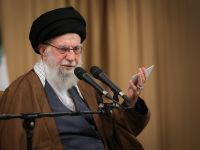Washington and London are rushing to judgment about Iraq's weapons report and should wait for U.N. arms inspectors to do their job, Saddam Hussein's chief scientific adviser said Sunday.
Amir al-Saadi complained that Secretary of State Colin Powell and British Foreign Secretary Jack Straw based their criticisms on "old, rehashed reports" from the previous "discredited" arms inspection program in the 1990s.
Al-Saadi said Iraq had answered many of the leftover questions in its report or in personal interviews with arms inspection teams that returned last month. He listed two examples concerning nuclear weapons and production of nerve gas, saying Iraq proved it had answered questions being raised anew by the United States or Britain.
He accused Powell and Straw of ignoring Iraq's replies and making judgments before the U.N. Monitoring, Verification and Inspection Commission could fully examine the Iraqi report.
"Why don't they let the specialized organs of the United Nations get on with their task?" he asked at a televised news conference. "Why interfere in this rude fashion?"
He also suggested that U.S. send CIA agents to direct U.N. arms inspectors to any suspect sites. "We do not even have any objections if the CIA sent somebody with the inspectors to show them the suspected sites," he said.
The Iraqi president on Sunday also accused the international community of doing too little to stop America's continued aggression toward Iraq, the country's official news agency reported.
"We have told the world we are not producing these kind of weapons, but it seems that the world is drugged, absent or in a weak position," Saddam said during talks Sunday with visiting Belarus envoy Nikolai Ivanchenko. "The world should tell America now there is no need for more aggression and sanctions on Iraq in order to let it cooperate freely (with the U.N.)," he was quoted as saying.
Meanwhile, The Times reported on Monday the U.N. is making secret contingency plans for a war that would halt all Iraqi oil production, “seriously degrade” the country’s electricity system, provoke civil unrest and create 900,000 refugees.
Internal UN documents project that the worst fighting will be in the three central governorates around Baghdad, with the Kurdish-controlled north remaining largely free of conflict, the newspaper added.
Although formally expressing the hope that war can be averted, UN relief agencies are already positioning emergency supplies and updating evacuation procedures for the hundreds of international staff now inside Iraq.
“The UN expects that there will be full compliance by Iraq . . . and that, consequently, there will be no new humanitarian crisis,” one document says, acording to the newspaper.
Kofi Annan, the UN Secretary-General, is trying to keep the preparations secret for fear of signalling to Iraq that weapons inspections are futile and a US-led attack is inevitable. But he ordered staff to begin contingency planning last month after the Security Council set tough terms for resumed inspections in Iraq. His Canadian deputy, Louise Fréchette, is chairing regular meetings of officials to prepare for a possible humanitarian crisis. (Albawaba.com)
© 2002 Al Bawaba (www.albawaba.com)







